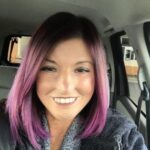 PHILADELPHIA—Representatives of the Young Patients’ Autoimmune Research and Empowerment Alliance (YP AREA) led a panel titled Young Patients with Big Ideas Will Revolutionize Healthcare and Research, in which they discussed their work as advocates for adolescent and young adult (AYA) patients. YP AREA’s mission is to make autoimmune research more accessible and inclusive by involving youth patient advocates at every level of the research process.
PHILADELPHIA—Representatives of the Young Patients’ Autoimmune Research and Empowerment Alliance (YP AREA) led a panel titled Young Patients with Big Ideas Will Revolutionize Healthcare and Research, in which they discussed their work as advocates for adolescent and young adult (AYA) patients. YP AREA’s mission is to make autoimmune research more accessible and inclusive by involving youth patient advocates at every level of the research process.
As patient partners, each panelist had been trained to tell their stories to medical professionals, and at ACR Convergence 2022, they demonstrated their passion and eloquence as public speakers. The panelists were all in their teens or early 20s and had varying levels of expertise in research and advocacy, in addition to their lived experience as patients with chronic autoimmune conditions. One speaker, Ela Chintagunta, has been working in patient advocacy since becoming an ambassador for the Arthritis Foundation at age 13.
Patient partners can help medical providers communicate more clearly across differences of age, experience and identity. “As a patient, I am much more able to ask questions … that are more relevant to the patient experience and inclusive of the patient experience,” said Anya Khurana.
Citing the field of narrative medicine, panelists emphasized the importance of humility and active listening when engaging with patients.
“Being an advocate in the doctor’s office feels like a full-time job itself,” said Catherine Ames, a senior at the University of Southern California who has been living with chronic illness since she was 21.
However, YP AREA’s mission goes beyond the clinical encounter. Their stance, guided by the principle of patient-centered care, is that young people are knowledgeable about their health conditions and can provide expert insight, and that consulting with them during the research process benefits all. In the words of Ms. Ames, “If we do not share our story, you do not know our needs.”
Ms. Ames helms a column in her university’s newspaper about living with chronic illness, which she credits as helping build networks of solidarity with other chronically ill young people.
By cultivating mutually beneficial relationship with researchers, youth patient advocates hope to improve the effectiveness and relevance of research. Ms. Khurana observed, “You can affect the outcomes of so many more people than just the ones who come through your clinic.”
Several of the panelists identified institutional paywalls as one of the biggest roadblocks to making research more accessible. “There is literally a barrier to entry if you want to look at research articles,” said Ms. Ames. “I’m sure that self-empowerment as a patient is a central focus for a lot of providers. And we’re here to say that patients are empowered, but there is a literal roadblock to getting that research, reading through it, looking at the methods, looking at the conclusion, and understanding the main takeaway from it because we can’t read it; we can only read the introduction.”
“I know that research is the foundation on which legislation is written. It’s how treatments are developed; how social programs are designed and implemented. It’s how funding gets decided,” said Madison Snider. By including young patients in clinical trials, researchers can gain crucial insight into their treatment goals and priorities and begin to address structural inequities in care.
Glen K. Rodman is the assistant editor of The Rheumatologist.





